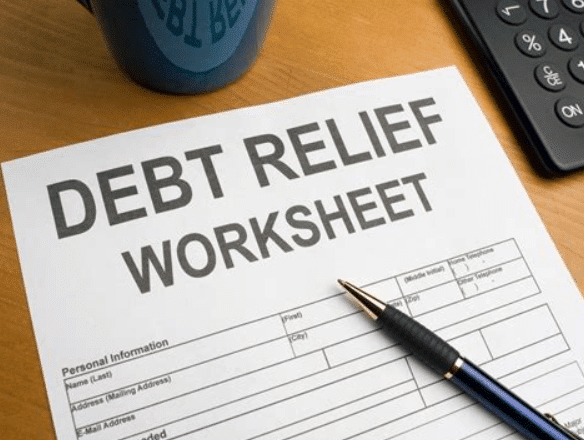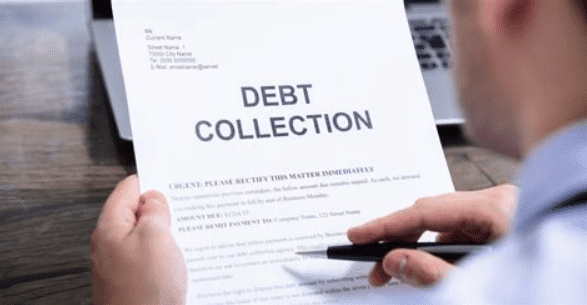If you find yourself facing a lawsuit from WebBank, a digital bank notorious for its predatory interest rates and involvement in class action lawsuits, it’s crucial to take swift and informed action. Utilizing ZumaZip.com can assist you in drafting and filing your response before your state’s deadline, ensuring you meet all legal requirements.
Despite the daunting situation, it’s important to recognize that you have options available to improve your circumstances. While it may be tempting to avoid addressing the issue, doing so can exacerbate the situation.
One common practice of WebBank involves compelling customers to sign contracts, often without receiving copies of these contracts due to mandatory arbitration clauses. This can pose challenges for customers seeking recourse through the legal system. Nevertheless, if you’re being pursued for a debt by WebBank, you can respond and effectively defend yourself in court. With the right approach and resources, you can navigate the legal process and potentially achieve a favorable outcome.
Here’s how.
Don’t let debt collectors get a default judgment against you; respond with ZumaZip.com.
What is WebBank, and how does it work?
Located in Salt Lake City, UT, WebBank is a “national issuer of consumer and small business credit products,” which is just a fancy way of saying it is a bank that funds consumer and commercial loan products, revolving lines of credit, credit cards, private-label card issuance, auto-refinancing and more. WebBank has been known to finance companies like Fingerhut, Dell Computer, Yamaha, Avant, Klarna, Lending Club, Onemain Financial, and Paypal, to name a few.
If you’ve engaged with any of the companies or services associated with WebBank, it’s probable that WebBank provided the financing. Consequently, if WebBank pursues you for a debt owed, you might not immediately recognize the name “WebBank” due to its indirect involvement.
In some instances, WebBank may opt to sell your debt account to a debt collection agency or enlist one to pursue collections on their behalf. This adds another layer of complexity to the situation, potentially causing further confusion for individuals navigating debt collection proceedings.
You can reach WebBank at the following address:
WebBank
215 S. State St.
Suite 1000
Salt Lake City, UT 84111
If you’re being sued by WebBank, the first step to winning in court is to understand your rights and to file an Answer to the lawsuit.
You have rights that protect you under the FDCPA
The Fair Debt Collection Practices Act (FDCPA) protects consumers, like you, from unethical debt collection practices. For example, the FDCPA prohibits debt collectors from:
- Calling consumers before 8 a.m. or after 9 p.m.
- Using abusive, threatening, or vulgar language to intimidate consumers into paying off a debt.
- Threatening to arrest or take legal action that they cannot or do not plan to take.
- Pretending to be the police or a judge.
- Discussing a consumer’s debt with their friends, family, or coworkers.
- Calling consumers at their workplace when the employer prohibits such communications.
These are just some of the ways that the FDCPA protects consumers. If WebBank collectors or a debt collection agency representing WebBank, have used any of these tactics to get you to pay off your debt, report it to the FTC, CFPB, or your state’s attorney general. You may be eligible for compensation of up to $1,000 per violation of the FDCPA.
Respond to a debt lawsuit against WebBank
Ignoring a debt claim from WebBank, especially if it escalates to a lawsuit, is not advisable. Doing so can lead to a default judgment, granting WebBank the authority to pursue aggressive measures such as wage garnishment, property seizure, or bank account levies.
If you’ve been sued by WebBank, it’s essential to take immediate action by filing an Answer with the court. Additionally, ensure you send a copy of the Answer to the attorneys representing WebBank. For further guidance on how to respond to a debt collection lawsuit, you can explore resources available at ZumaZip.com.
What you need to know about the hearing
When attending your debt collections hearing, it’s essential to present your case effectively. Regardless of whether you acknowledge the debt or dispute it, exploring affirmative defenses is crucial. For instance, you can challenge WebBank to substantiate the debt’s validity. If they fail to provide sufficient evidence demonstrating that you owe the debt or that they possess the legal right to pursue you for it, the case may be dismissed.
Additionally, you have the option to pursue settlement negotiations before the hearing. This approach enables you to explore alternative arrangements such as setting up a payment plan or negotiating a reduced settlement amount.
In cases where you genuinely believe you don’t owe the debt, there may be additional affirmative defenses available to you. These could include situations where you received defective goods, never received the purchased items, or signed a contract without understanding its terms. These defenses can be instrumental in challenging a lawsuit brought by WebBank.
Ultimately, the decision on how to proceed should be based on your individual circumstances. However, it’s crucial always to respond to a debt collection lawsuit to ensure you protect your rights and interests throughout the legal process.
How does the WebBank arbitration clause work?
Because WebBank requires arbitration, you should not feel powerless. WebBank requires this to limit their damages, but you can use it against them to increase the chances of WebBank dropping a lawsuit. Arbitration typically only helps WebBank when it comes to class action lawsuits or larger cases over $10,000.
When it comes to smaller cases under $10,000, arbitration is often not worth the cost of the debt. For example, the filing costs for arbitration can range from a few hundred dollars to $2,500 or more. If your initial contract with WebBank contains a mandatory arbitration clause, WebBank may have no choice but to pursue arbitration before filing a lawsuit. If you exercise your right to arbitration, WebBank may decide to drop the case altogether. Regardless, there are a few things you need to do if WebBank has sued you.
WebBank was involved in a Supreme Court class action lawsuit
A Motion to Compel Arbitration in the case of Bethune v. Lending Club Corporation et al. sparked considerable attention in a closely monitored class action lawsuit. The plaintiff initiated the legal proceedings by filing a complaint in April 2016, contesting a loan obtained through Lending Club’s online platform and facilitated by WebBank.
To understand the heart of the case, it is essential to understand that most states have “usury laws” designed to protect consumers from predatory interest rates. In the class action lawsuit filed by Mr. Bethune, the plaintiff alleges that WebBank exploited consumers by leveraging the usury laws of its chartered state, Utah, rather than adhering to the regulations of the state where each consumer resides. Mr. Bethune, a resident of New York, highlights that while New York imposes an interest rate cap of 16%, Utah’s usury laws, when applied through a contractual agreement, allow for interest rates capped at 50%. This discrepancy underscores the contention that WebBank’s practices may disproportionately disadvantaged consumers, particularly those residing in states with lower interest rate limits.
Mr. Bethune alleged that the defendants violated state usury laws and state consumer protection laws by extending loans to borrowers at interest rates surpassing the usury caps in the borrowers’ respective home states.
However, the court swiftly dismissed the plaintiff’s contention that the arbitration agreement was inherently unconscionable, characterizing it as “perfunctory.” Notably, the plaintiff had a 30-day window to opt-out of the arbitration clause but failed to do so. Consequently, the district court overseeing the case upheld the defendant’s right to compel arbitration. The arbitration clause stipulated that any disputes must be resolved through arbitration on an individual basis, effectively shielding the lender from facing a class action lawsuit.
Lending Tree eventually agreed to pay a $2 million penalty to resolve the allegations. Both Lending Tree and WebBank made no admission of responsibility.
How does WebBank Fingerhut work?
The Fingerhut FreshStart installment loan and the Fingerhut Advantage Credit Account are financial products provided by WebBank. These offerings are commonly utilized to finance purchases made through Fingerhut’s catalog or website.
The WebBank Fingerhut Credit Account operates as a revolving line of credit, akin to a traditional credit card. It is marketed as an option for online shoppers to build their credit history while managing periodic payments for their purchases.
Is Fingerhut suing me?
If you find yourself in debt to Fingerhut, it’s important to recognize that they have the legal right to pursue legal action against you, which could result in them obtaining a judgment in their favor. To increase your chances of a favorable outcome in court, the initial step is to file your Answer to the lawsuit.
ZumaZip.com can streamline this process for you, enabling you to respond to the lawsuit swiftly and efficiently in just 15 minutes. By promptly addressing the lawsuit with a well-prepared Answer, you can effectively defend your rights and interests in the legal proceedings.
What is ZumaZip?
ZumaZip is a convenient solution designed to streamline your response to a debt collection lawsuit. Here’s a breakdown of what you can expect when you use ZumaZip:
Firstly, you’ll access our user-friendly web application, which guides you through the process step by step. You’ll be prompted to answer a series of questions related to your specific situation. Once you’ve completed the questionnaire, you have the option to either print out the finalized forms and mail them to the appropriate courts yourself, or you can opt to utilize ZumaZip’s services to file them on your behalf. Additionally, if you choose this option, an attorney will review your document for added peace of mind.
If you’re seeking guidance on how to effectively respond to a debt collection lawsuit, ZumaZip can provide the assistance you need. Feel free to explore our FAQs for more information on what ZumaZip has to offer.
What if I haven’t been sued yet?
If you’ve only received a collections notice, but not a lawsuit, the best way to respond is with a Debt Validation Letter. When a debt collector contacts you in any way, whether it’s by phone or mail, you can respond by formally requesting a debt validation with a Debt Validation Letter . This letter notifies the collector that you dispute the debt and forces them to provide proof you owe the debt. They can’t call you or continue collecting until they provide validation of the debt. This flowchart shows how you can use a Debt Validation Letter to win.
Get started with a Debt Validation Letter here.
How to Answer a Summons for debt collection in all 50 states
Here’s a list of guides on how to respond to a debt collection lawsuit in each state:
- Alabama
- Alaska
- Arizona
- Arkansas
- California
- Colorado
- Connecticut
- Delaware
- Florida
- Georgia
- Hawaii
- Idaho
- Illinois
- Indiana
- Iowa
- Kansas
- Kentucky
- Louisiana
- Maine
- Maryland
- Massachusetts
- Michigan
- Minnesota
- Mississippi
- Missouri
- Montana
- Nebraska
- Nevada
- New Hampshire
- New Jersey
- New Mexico
- New York
- North Carolina
- North Dakota
- Ohio
- Oklahoma
- Oregon
- Pennsylvania
- Rhode Island
- South Carolina
- South Dakota
- Tennessee
- Texas
- Utah
- Vermont; Vermont (Small Claims court)
- Virginia
- Washington
- West Virginia
- Wisconsin
- Wyoming
Guides on how to beat every debt collector
Hey there! Facing off against a debt collector can feel like a daunting challenge, but fear not! We’re here to help you navigate through it all with our handy guides designed to assist you in beating every debt collector you encounter. Whether you’re facing a new lawsuit or dealing with a persistent collector, we’ve got your back. Stay positive, stay informed, and let’s tackle this together!
- Absolute Resolutions Investments LLC
- Accredited Collection Services
- Alliance One
- Amcol Clmbia
- American Recovery Service
- Asset Acceptance LLC
- Asset Recovery Solutions
- Associated Credit Services
- Autovest LLC
- Cach LLC
- Cavalry SPV I LLC
- Cerastes LLC
- Colinfobur
- Covington Credit
- Crown Asset Management
- CTC Debt Collector
- Cypress Financial Recoveries
- Delanor Kemper & Associates
- Eagle Loan of Ohio
- Educap
- Estate Information Services
- FIA Card Services
- Forster & Garbus
- Freshview Solutions
- Fulton Friedman & Gullace LLP
- Harvest Credit Management
- Howard Lee Schiff
- Hudson & Keyse LLC
- Integras Capital Recovery LLC
- Javitch Block
- Jefferson Capital Systems LLC
- LVNV Funding
- Mannbracken
- Mariner Finance
- Medicredit
- Michael J Adams PC
- Michael J Scott
- Midland Funding LLC
- Mullooly, Jeffrey, Rooney & Flynn
- Mountain Land Collections
- MRS Associates
- National Collegiate Trust
- Nationstar Foreclosure
- Northstar Capital Acquisition
- NCEP LLC
- NRC Collection Agency
- OneMain Financial
- Palisades Collection LLC
- Pallida LLC
- Paragon Revenue Group
- Pinnacle Collections Agency
- PMAB LLC
- Portfolio Recovery Associates
- Provest Law
- PYOD LLC
- Reunion Student Loan Finance Corporation
- Revenue Group
- Regents and Associates
- RSIEH
- Salander Enterprises LLC
- Second Round Sub LLC
- Security Credit Services
- Sherman Financial Group
- Suttell and Hammer
- T-Mobile
- Transworld Systems
- Tulsa Teachers Credit Union
- UCB Collection
- Velo Law Office
- Velocity Investments
- Waypoint Resource Group
- Weinberg and Associates
- Wolpoff & Abramson
Settle your medical debt
Having a health challenge is stressful, but dealing medical debt on top of it is overwhelming. Here are some resources on how to manage medical debt.
- Am I Responsible for My Spouse’s Medical Debt?
- Do I Need a Lawyer for Medical Bills?
- Do I Need a Lawyer to Fight Medical Bill Debt?
- Does Bankruptcy Clear Medical Debt?
- How Much Do Collection Agencies Pay for Medical Debt?
- How to Find Medical Debt Forgiveness Programs
- Is There a Statute of Limitations on Medical Bills?
- Medical Debt Statute of Limitations by State
- Summoned to Court for Medical Bills — What Do I Do?
- Summoned to Court for Medical Bills? What to Do Next
Stop calls from Debt Collectors
Do you keep getting calls from an unknown number, only to realize that it’s a debt collector on the other line? If you’ve been called by any of the following numbers, chances are you have collectors coming after you, and we’ll tell you how to stop them.
- 800-390-7584
- 800-289-8004
- 800-955-6600
- 877-366-0169
- 877-591-0747
- 800-278-2420
- 800-604-0064
- 800-846-6406
- 877-317-0948
- 888-899-4332
- 888-912-7925
- 202-367-9070
- 502-267-7522
Other wage garnishment resources
- Bank Account Garnishment and Liens in Texas
- Can I Stop Wage Garnishment?
- Can My Wife’s Bank Account Be Garnished for My Debt?
- Can Payday Loans Garnish Your Wages?
- Can pensions be garnished?
- Can Private Disability Payments Be Garnished?
- Can Social Security Disability Be Garnished?
- Can They Garnish Your Wages for Credit Card Debt?
- Can You Stop a Garnishment Once It Starts?
- Guide to Garnishment Limits by State
- How Can I Stop Wage Garnishments Immediately?
- How Long Before a Creditor Can Garnish Wages?
- How Long Does It Take to Get Garnished Wages Back?
- How to Fight a Wage Garnishment
- How to Prevent Wage Garnishment
- How to Stop a Garnishment
- How to Stop Social Security Wage Garnishment
- How to Stop Wage Garnishment — Everything You Need to Know
- New York Garnishment Laws – Overview
- Ohio Garnishment Laws — What They Say
- Wage Garnishment Lawyer
- What Is Wage Garnishment?
Guides on Arbitration
If the thought of going to court stresses you out, you’re not alone. Many Americans who are sued for credit card debt utilize a Motion to Compel Arbitration to push their case out of court and into arbitration.
Below are some resources on how to use an arbitration clause to your advantage and win a debt lawsuit.
- How Arbitration Works
- How to Find an Arbitration Clause in Your Credit Agreement
- How to Make a Motion to Compel Arbitration
- How to Make a Motion to Compel Arbitration in Florida
- How to Make a Motion to Compel Arbitration Without an Attorney
- How Credit Card Arbitration Works
- Motion to Compel Arbitration in California
- Sample Motion to Compel Arbitration
Federal Debt Collection Laws Can Protect You
Knowing your rights makes it easier to stand up for your rights. Below, we’ve compiled all our articles on federal debt collection laws that protect you from unfair practices.
- 15 USC 1692 Explained
- Does the Fair Credit Reporting Act Work in Florida?
- FDCPA Violations List
- How to File an FDCPA Complaint Against Your Debt Collector (Ultimate Guide)
- How to Make a Fair Debt Collection Practices Act Demand Letter
- How to Submit a Transunion Dispute
- How to Submit an Equifax Dispute
- How to Submit an Experian Dispute
- What Debt Collectors Cannot Do — FDCPA Explained
- What Does Account Information Disputed by Consumer Meets FCRA Requirements Mean?
- What does “meets FCRA requirements” mean?
- What does FCRA stand for?
- What is the Consumer Credit Protection Act
Resolve Your Debt with Your Creditor
Some creditors, banks, and lenders have an internal collections department. If they come after you for a debt, ZumaZip can still help you respond and resolve the debt. Here’s a list of guides on how to resolve debt with different creditors.
- American Express; American Express – Debt Collection
- Bank of America
- Barclay
- Best Buy Credit Card
- Capital One
- Chase
- Credit One Bank
- Old Navy Credit Card
- PayPal Synchrony Card
- Regional Finance
- Retailers National Bank
- Reunion Student Loan Finance Corporation
- SYNCB/PPEXTR
- Synchrony Bank
- Synchrony Walmart Card
- Target National Bank
- Webbank
- Wells Fargo
- Can I Pay My Original Creditor Instead of a Debt Collection Agency?
- Can I Settle a Debt with the Original Creditor?
Check the Status of Your Court Case
Don’t have time to go to your local courthouse to check the status of your case? We’ve created a guide on how to check the status of your case in every state, complete with online search tools and court directories.
- Alabama Court Case Search—Find Your Lawsuit
- Alaska Court Case Search — Find Your Lawsuit
- Arizona Court Case Search – Find Your Lawsuit
- Arkansas Court Case Search — Find Your Lawsuit
- California Court Case Search- Find Your Lawsuit
- Colorado Court Case Search — Find Your Lawsuit
- Connecticut Case Lookup — Find Your Court Case
- Delaware Court Case Search — Find Your Lawsuit
- Florida Court Case Search — Find Your Lawsuit
- Georgia Court Case Search — Find Your Lawsuit
- Hawaii Court Case Search — Find Your Lawsuit
- Idaho Court Case Search – Find Your Lawsuit
- Illinois Court Case Search — Find Your Lawsuit
- Indiana Court Case Search — Find Your Lawsuit
- Iowa Court Case Search — Find Your Lawsuit
- Kansas Court Case Search — Find Your Lawsuit
- Kentucky Court Case Search — Find Your Lawsuit
- Louisiana Court Case Search — Find Your Lawsuit
- Maine Court Case Search — Find Your Lawsuit
- Maryland Court Case Search — Find Your Lawsuit
- Massachusetts Court Case Search — Find Your Lawsuit
- Michigan Court Case Search — Find Your Lawsuit
- Minnesota Court Case Search — Find Your Lawsuit
- Mississippi Court Case Search — Find Your Lawsuit
- Missouri Court Case Search — Find Your Lawsuit
- Montana Court Case Search — Find Your Lawsuit
- Nebraska Court Case Search — Find Your Lawsuit
- Nevada Court Case Search — Find Your Lawsuit
- New Hampshire Court Case Search — Find Your Lawsuit
- New Jersey Court Case Search—Find Your Lawsuit
- New Mexico Court Case Search – Find Your Lawsuit
- New York Case Search — Find Your Lawsuit
- North Carolina Court Case Search — Find Your Lawsuit
- North Dakota Court Case Search — Find Your Lawsuit
- Ohio Court Case Search — Find Your Lawsuit
- Oklahoma Court Case Search — Find Your Lawsuit
- Oregon Court Case Search — Find Your Lawsuit
- Pennsylvania Court Case Search — Find Your Lawsuit
- Rhode Island Court Case Search — Find Your Lawsuit
- South Carolina Court Case Search — Find Your Lawsuit
- South Dakota Court Case Search — Find Your Lawsuit
- Tennessee Court Case Search — Find Your Lawsuit
- Texas Court Case Search — Find Your Lawsuit
- Utah Court Case Search — Find Your Lawsuit
- Vermont Court Case Search — Find Your Lawsuit
- Virginia Court Case Search — Find Your Lawsuit
- Washington Court Case Search — Find Your Lawsuit
- West Virginia Court Case Search — Find Your Lawsuit
- Wisconsin Court Case Search — Find Your Lawsuit
- Wyoming Court Case Search — Find Your Lawsuit



































